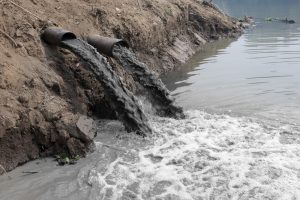The EPA recently provided notice of a proposed administrative penalty settlement with BP Products North America for violations of the Clean Water Act (CWA) at its facility located in Seattle, Washington.
The EPA alleges that the respondent failed to comply with its National Pollutant Discharge Elimination System (NPDES) Construction General Permit.
Alleged violations include:
- Its stormwater pollution prevention plan was missing map information.
- Its stormwater pollution prevention plan wasn’t modified to include changes to the best management practices and inspector contact information.
- Its stormwater pollution prevention plan was missing information regarding discharge of potable water.
- There was missing information in the inspection reports.
- It failed to maintain best management practices.
The CWA prohibits anybody from discharging “pollutants” through a “point source” into a “water of the United States” unless they have an NPDES permit. The permit will contain limits on what can be discharged, monitoring and reporting requirements, and other provisions to ensure the discharge doesn’t hurt water quality or people’s health. NPDES permits translate general requirements of the CWA into specific provisions tailored to the operations of each person discharging pollutants.
Material handling and storage, equipment maintenance and cleaning, and other activities at industrial facilities are often exposed to the weather. Runoff from rainfall or snowmelt that comes in contact with these activities can pick up pollutants and transport them directly to a nearby river, lake, or coastal water or indirectly via a storm sewer and degrade water quality.
The 11 categories of regulated industrial activities are:
- Category One: Facilities subject to federal stormwater effluent discharge standards at 40 Code of Federal Regulations (CFR) Parts 405-471
- Category Two: Heavy manufacturing (e.g., paper mills, chemical plants, petroleum refineries, steel mills, and foundries)
- Category Three: Coal and mineral mining and oil and gas exploration and processing
- Category Four: Hazardous waste treatment, storage, and disposal facilities
- Category Five: Landfills, land application sites, and open dumps with industrial wastes
- Category Six: Metal scrapyards, salvage yards, automobile junkyards, and battery reclaimers
- Category Seven: Steam electric power generating plants
- Category Eight: Transportation facilities that have vehicle maintenance, equipment cleaning, or airport de-icing operations
- Category Nine: Treatment works treating domestic sewage with a design flow of 1 million gallons a day or more
- Category Ten: Construction sites that disturb 5 acres or more (permitted separately)
- Category Eleven: Light manufacturing (e.g., food processing, printing and publishing, electronic and other electrical equipment manufacturing, public warehousing, and storage)
BP settlement
The BP settlement is being simultaneously commenced and concluded via an Expedited Settlement Agreement. Under the proposed agreement, BP has agreed to pay a civil penalty of $3,180 and has returned to compliance, according to the EPA.

